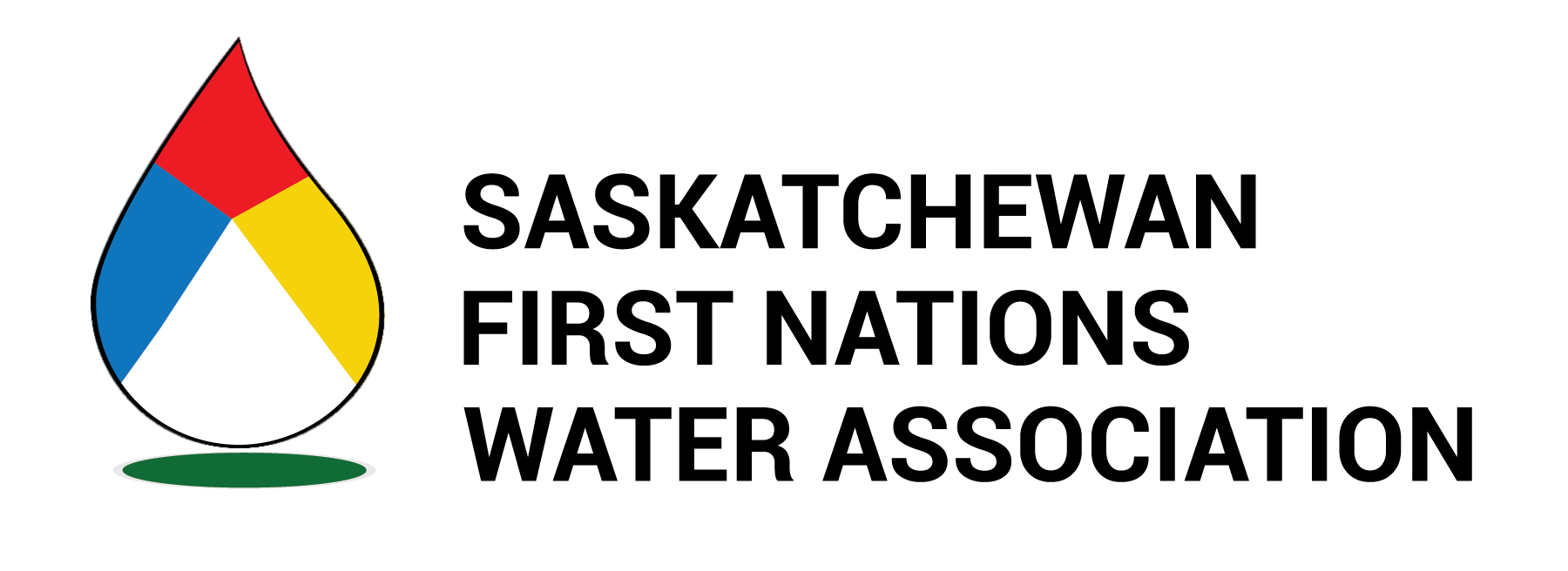Projects
There are multiple community-based research projects underway, all with the goal to increase First Nations’ capacity to govern their own water systems. SFNWA is also often asked to write Letters of Support and to be involved in research projects on which graduate students are working.
Drinkable Water Regulations
The Healthy Water Working Group was formed in June 2017, following mandates from the Federation of Sovereign Indigenous Nations (FSIN) Chiefs in Assembly, to create water quality standards and regulations for water on SK reserves. These regulations and standards address drinking water as part of the Source To Tap To Source (ST3S) governance system. This document, currently in draft form, will serve as rules and a resource for all those involved in drinking water systems in First Nations communities in SK. The Regulations meet stringent water quality standards based on human health research. They are continually being adapted following engagement and new knowledge. Pilots to determine capacity gaps and budget requirements to fully implement the Regulations are projected to begin in early 2024.
The members of the Healthy Water Working Group (HWWG) included: Crystal Okemow (Chief, former water systems operator and water quality technician, Lucky Man First Nation), Deon Hassler (circuit rider trainer, File Hills Qu’Appelle Tribal Council), Micheal Bob (Councillor, Kahkewistehaw First Nation), Bill Marion (water systems operator, public works manager, James Smith Cree Nation), Robert Pratt (water systems operator and oversight operator, George Gordon First Nation), Larry Cachene (contractor, former Chief of Yellow Quill First Nation), Yolanda Ducharme (environmental health officer, Montreal Lake Tribal Council), Robert Patrick (professor, University of Saskatchewan), and Rebecca Zagozewski (facilitator for HWWG and Researcher at University of Saskatchewan).
Source Water Protection
Source water protection is defined as the practice of protecting your drinking water source from contamination. It is far better, and more cost effective, to prevent a contamination event from occurring rather than to remediate after contamination. Source water protection also helps to maintain a consistent quality of water to your treatment plant. Threats to community water sources are identified, followed by management actions to reduce, or eliminate, those threats. Well-head protection, well decommissioning, cistern repair, landfill clean-up, lagoon repair, and industry monitoring are all examples of management actions to reduce threats to community source water. Facilitated by Dr. Robert Patrick (University of Saskatchewan), a working committee of community members develops a plan over six meetings. First Nations in Saskatchewan are leaders in source water protection planning in Canada with about 10 communities now having plans.
Decentralized Water Distribution Research
First Nations require sustainable solutions for drinking water distribution to homes that are not centrally located. Currently, decentralized distribution includes truck-to-cistern systems, low-pressure to cistern systems, and onsite (groundwater well) systems, often subject to contamination and water advisories. Research to compare the true, long-term costs of these systems, including social, health, capital, and operation and maintenance implications, is underway. We aim to include a decision-making tool for First Nations bands within the Drinkable Water Regulations document.
Biofiltration Workshop
In partnership with Advanced Technology Applications (ATAP) Infrastructure Management Ltd., a group of SK First Nations operators gathered to take part in a pilot biofiltration workshop. The invited operators had acquired between six months to 18 years of experience operating biological filtration with reverse osmosis drinking water systems. They provided feedback and insight so that the module reflected the experiences of operators on reserve. This Association of Boards of Certification (ABC) certified, Saskatchewan First Nations Water Association-owned one-day workshop was awarded 0.7 CEUs and will soon be available to water systems operators in SK.
Operator Support Research
Water systems operators fill an essential role in every community. They require support in many areas in order to provide drinkable water to community members. Research across several jurisdictions—both First Nations and non-First Nations—is being carried out to create and adapt support mechanisms for First Nations operators in SK including salaries; recognition and promotion of the roles of water systems operators; and networking and communications systems. We hope that attention in these areas might aid the retention and recruitment of operators in the region.
Drinking Water Satisfaction and Levels of Service
We have written a Letter of Support for Tim Vogel’s project titled “Drinking Water Satisfaction and Levels of Service”.
Impacts of Water Insecurity on Indigenous Peoples’ Mental and Spiritual Wellness in Saskatchewan, Canada
We have written a Letter of Support for Selena Komarevich’s project titled “Impacts of Water Insecurity on Indigenous Peoples’ Mental and Spiritual Wellness in Saskatchewan, Canada”. The primary goal of this research project is to explore how water insecurity impacts Indigenous (First Nations and Métis) spiritual wellness and, in turn, their overall health.
